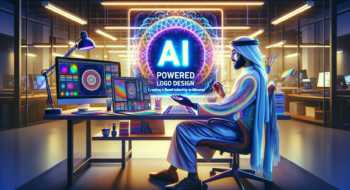OpenAI's Venture into AI Morality: A New Era of Ethical AI
In the ever-evolving landscape of artificial intelligence, a significant shift is underway, courtesy of OpenAI. The organization, known for its groundbreaking work in AI, has embarked on a mission to infuse AI systems with a sense of morality. This initiative, dubbed "AI morality," aims to create artificial intelligence that not only follows commands but also understands and adheres to ethical principles.
The Need for Moral AI
Artificial intelligence is no longer a novelty; it is an integral part of our daily lives, from the smartphones in our pockets to the self-driving cars on our roads. However, as AI becomes more pervasive, the question of its ethical implications becomes increasingly pertinent. Can AI make decisions that align with human moral values? This is where OpenAI's latest venture comes into play.
Funding Research at Duke University
OpenAI has taken a substantial step by funding a research project at Duke University titled "Research AI Morality." This project is part of a larger, three-year grant worth $1 million, awarded to Duke professors who are dedicated to studying how to make AI more moral[1][3].
Objectives of the Research
The primary goal of this research is to develop algorithms that can predict human moral judgments. By doing so, the researchers hope to create AI systems that can navigate complex human values and ensure that their decisions benefit society in an ethical and responsible manner.
- Predicting Moral Judgments: The researchers aim to design algorithms that can foresee how humans would make moral choices in various scenarios. This involves understanding the nuances of human ethics and translating them into computational models.
- Ethical Decision-Making: The ultimate objective is to enable AI systems to make decisions that are not only efficient but also ethical. This means the AI should be able to distinguish between right and wrong and act accordingly.
- Benefiting Society: By ensuring that AI systems operate within ethical boundaries, the research aims to create a future where technology is safer and more beneficial to society.
Challenges and Implications
While the idea of moral AI is intriguing, it comes with its set of challenges and implications.
Challenges
- Defining Morality: One of the biggest challenges is defining what morality means in the context of AI. Human moral values are diverse and often subjective, making it difficult to create a universal moral framework for AI.
- Complexity of Human Values: Human values are complex and context-dependent. Translating these values into algorithms that can be understood by AI is a daunting task.
- Avoiding Bias: Ensuring that AI systems are free from biases and prejudices is crucial. However, given that AI learns from data, which can be biased, this is a significant challenge.
Implications
- Safer Technology: If successful, moral AI could lead to safer technology. For instance, self-driving cars could make ethical decisions in critical situations, such as choosing between harming one person or another.
- Fairer Decisions: Moral AI could ensure that decisions made by AI systems are fair and unbiased. This is particularly important in areas like law enforcement, healthcare, and finance.
- Public Trust: By demonstrating that AI can operate ethically, OpenAI's research could help build public trust in AI technology. This trust is essential for the widespread adoption of AI in various sectors.
The Future of AI Morality
The potential impact of OpenAI's research into AI morality is vast. Here are a few ways this could shape the future:
Ethical AI in Everyday Life
Imagine an AI assistant that not only performs tasks efficiently but also considers the ethical implications of its actions. For example, a virtual assistant could decline to provide information that might harm someone or suggest actions that are morally questionable.
Autonomous Systems
Autonomous vehicles and drones could be programmed to make ethical decisions in real-time. This could significantly reduce the risk of accidents and ensure that these systems operate in a way that respects human life and dignity.
Healthcare and Medicine
In healthcare, moral AI could help in making life-or-death decisions. For instance, an AI system could prioritize patients based on ethical criteria, ensuring that the most critical cases are treated first.
Conclusion
OpenAI's foray into AI morality marks a significant milestone in the development of artificial intelligence. As we move forward, it is crucial to continue this research and address the challenges that come with it. The future of AI is not just about making it smarter but also about making it morally responsible.
Stay Informed
Want to be in the loop about the latest developments in AI morality and automation? Subscribe to our Telegram channel for the most up-to-date news and insights: https://t.me/OraclePro_News.
In the world of AI, it's not just about intelligence; it's about integrity. And with OpenAI leading the charge, we can look forward to a future where technology is not only smart but also morally sound.






